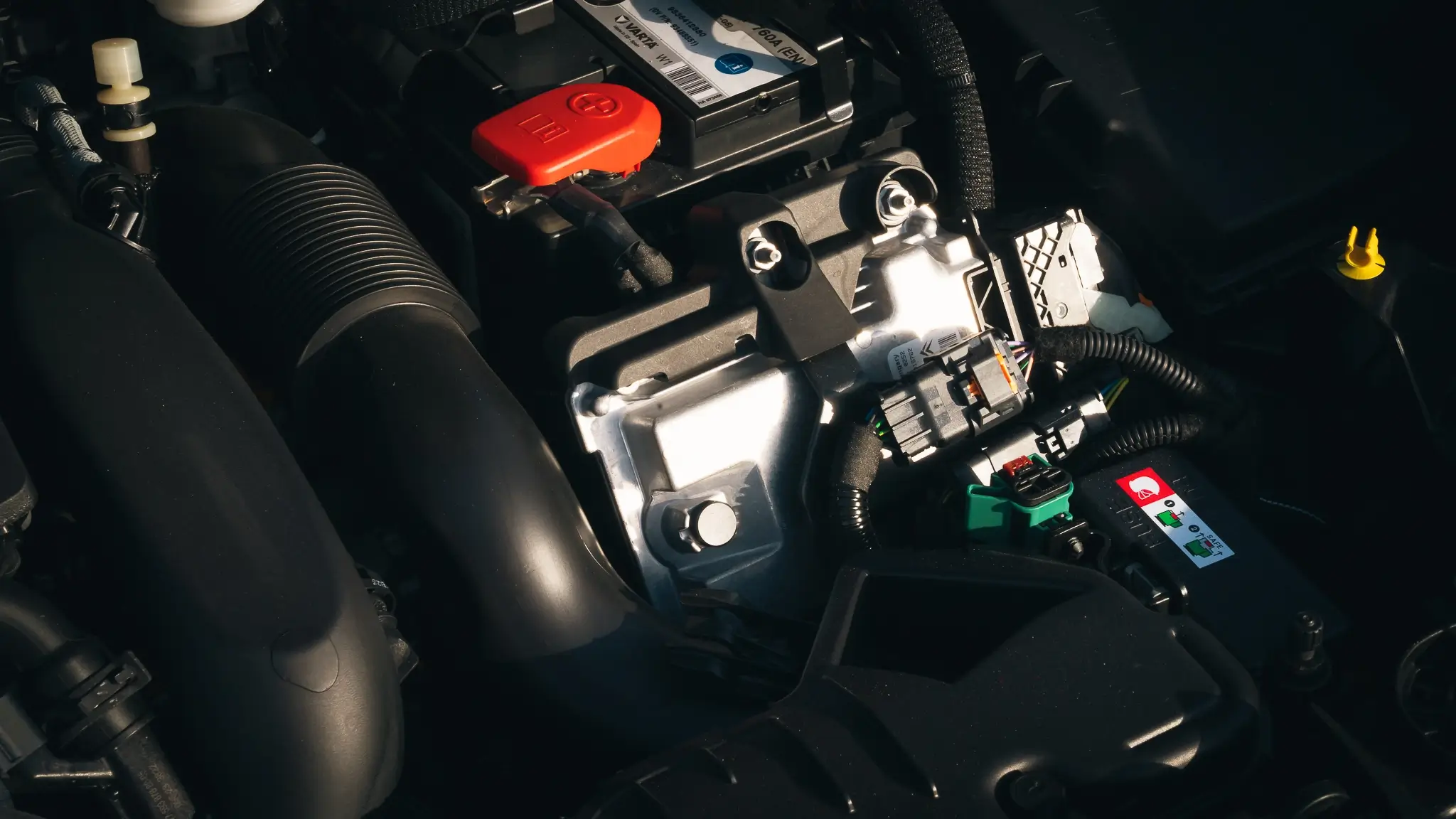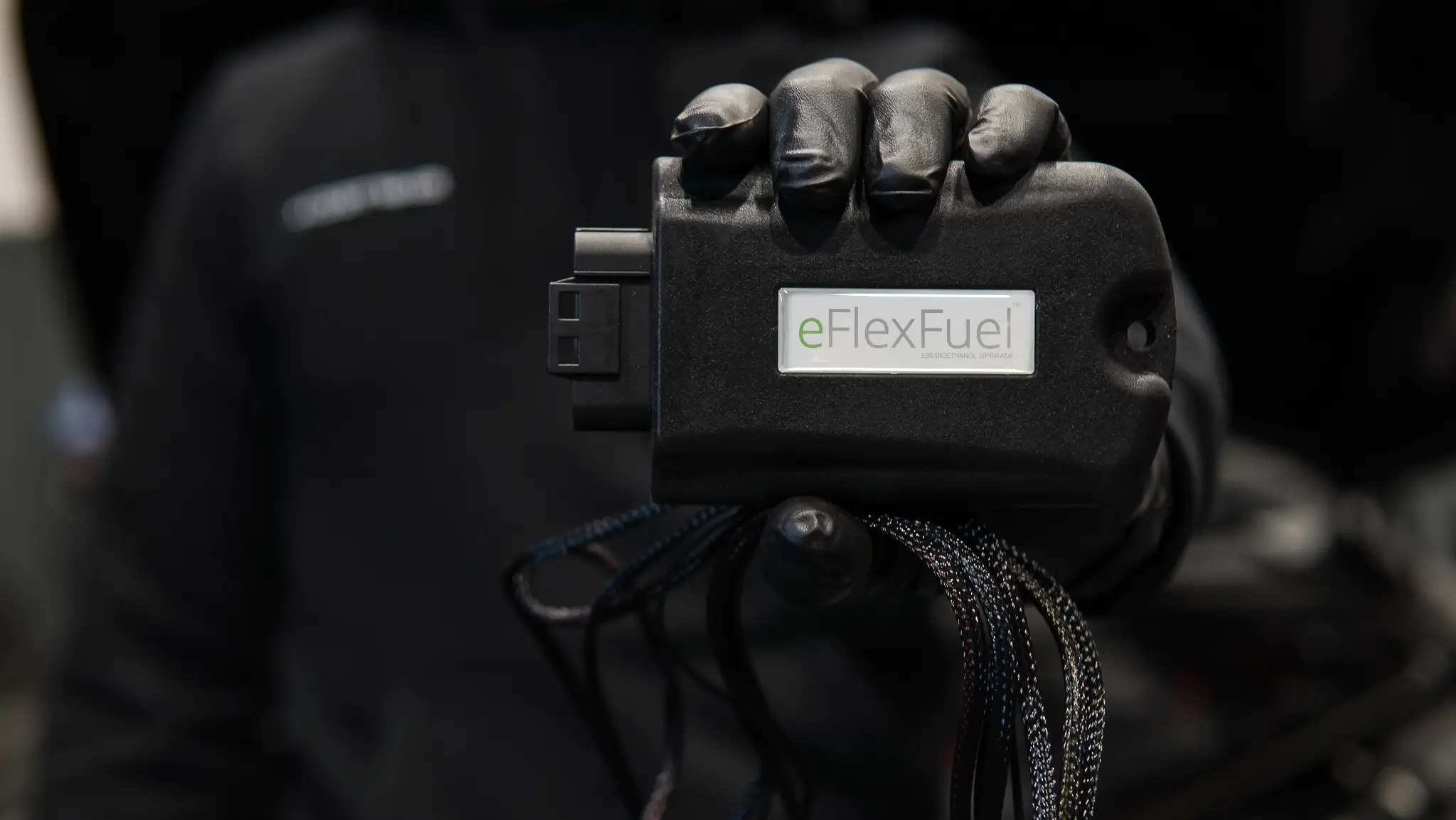
How can I convert my vehicle to ethanol?
Converting your vehicle to run on E85 ethanol is becoming an increasingly popular way to save money. Not only does conversion enable you to benefit from the lower price of E85 compared with petrol, it also optimises engine performance while reducing CO2 emissions.
This FAQ explores the two methods of conversion: chiptuning (mapping) and the installation of conversion boxes, detailing their advantages.

FLEX FUEL
E85 conversion via engine mapping
How do I convert my vehicle to e85 flexfuel?
Ethanol conversion can be carried out on most petrol vehicles with indirect or direct injection engines. There are two main methods for chiptuning your engine so that it can use bioethanol.
Electronic ECU chiptuning
E85 conversion involves modifying the parameters of the engine management ECU to optimise the operation of the injection and ignition systems according to the fuel used. This is the most effective and economical solution. If your vehicle is not compatible, you can turn to the following solution.
The E85 ethanol conversion kit.
The ethanol boxes we offer enable your petrol vehicle to be converted to Superethanol E85. The systems we provide have been approved and recognised by the government for over ten years.
The units are simple to install, involving direct connection to the vehicle's injectors using a harness specially adapted to the model concerned. Once in place, these 100% automatic devices precisely adjust the injection time according to the fuel in the tank, whether it's E85, petrol (it can be 95 or 98), or even a mixture of the two.
Is my car compatible with e85 conversion?
As soon as we can communicate with the calculator, all petrol-engined vehicles can benefit from an E85 conversion. To find out whether your vehicle is compatible for conversion to bioethanol, simply visit our configurator.
If you don't find the option there, it's because it can't be tuned, but you can always do it with one of our additional boxes.
Should I choose petrol or ethanol?
The advantage of converting to biethanol is that you can drive with a clear head. You don't have to worry about finding a petrol station that offers E85. Flex-fuel conversion makes your vehicle compatible with ethanol, petrol or a mixture of the two fuels, in any proportion. Your vehicle's lambda sensors enable it to adapt automatically to the chosen fuel.
Can the conversion be combined with an increase in power?
With our E85 Flex+ conversion, not only do you benefit from the advantages of converting to E85 bioethanol, you also get a power increase equivalent to a stage 1 chiptuning.
What are the costs of conversion?
At Shiftech, you have several options for converting your vehicle to run on E85 bioethanol:
-
The E85 Flex-fuel conversion, from €590 incl. VAT, allows your vehicle to run on ethanol, petrol or a mixture of the two, without any increase in power.
-
The E85 Flex+ conversion, from €790 incl. VAT, combines the E85 Flex-fuel conversion with the increased power of a Stage 1.
-
Installation of an approved Flex-fuel box kit, from €849 incl. VAT.
In the case of chiptuning, to adapt a customised map for your vehicle, the work generally lasts between 2 and 2.5 hours.
Fitting an E85 box takes around 4 hours.
Flex+: more power for your engine with ethanol
For those looking to combine eco-responsibility with increased performance, Shiftech is the undisputed leader in chiptuning adapted to ethanol.
With expertise built up over many years of experience, Shiftech offers the Flex+ service, an advanced package that goes beyond simple ethanol chiptuning.
This service not only converts your vehicle to ethanol; it also includes a significant increase in engine power, providing an optimised and dynamic driving experience. Rely on Shiftech's expertise for a more advanced ethanol chiptuning and a result that exceeds your expectations.
Ignition, a crucial point for starting in all seasons
Good ignition is essential to the smooth running of an engine running on bio-ethanol. The properties of this fuel mean that it ignites less well than petrol. That's why it's vital that your engine is fitted with spark plugs with less than 30000km and ignition coils with less than 60000km to ensure optimum spark quality and combustion.
Iridium spark plugs have a high electrical conductivity, and are often preferred for a denser spark. This makes them easier to start, especially in winter, and they are beneficial to your engine's ignition.